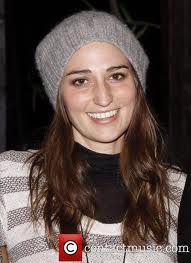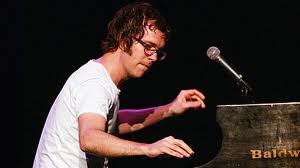That’s a phrase you might have seen me use, when I’ve talked about closing the gap between classical music and the rest of our culture.
But the person who said those words at the Kennedy Center in Washington the weekend before Thanksgiving ago wasn’t me. It was Renée Fleming, who of course is one of the most famous classical musicians alive, and who’s knocked down walls herself by recording albums of jazz (here, here) and even indie rock. She used the phrase at the Kennedy Center because she was knocking walls down again, this time by conceiving, producing, and hosting an extraordinary festival, which she called American Voices. You could call it a summit conference about American singing, involving — on an equal basis — a slew of musical genres, classical, pop, jazz, Broadway, country, and gospel. All were performed, talked about in panel discussions, and taught in masterclasses.
Never seen a pop masterclass before? Well, neither had I, and neither had Ben Folds and Sara Bareilles who taught the one at the festival. But after they disarmingly said they had no idea what to do, they rose to the occasion, and offered some focused and inspired teaching.
And in fact one lesson of the weekend was these diverse musical genres really are in many ways similar — that the walls between them are more apparent than real — because all the masterclasses I and my wife saw stressed the same points. For those who might not know, my wife is Anne Midgette, chief classical music critic of the Washington Post. Here’s her review of the festival. She and I both saw the pop masterclass and the jazz one, taught by Dianne Reeves, a titan of jazz; Anne also saw the classical masterclass, which Eric Owens ;ed, he of course being an operatic name quickly rising to the top.
Here’s the message from all three classes: Don’t be a clone, don’t do what others do. Let the words guide — their meaning, their resonance deep inside you — guide your singing. Don’t go for quick vocal effects (even if they’re spectacular), but instead sing from your heart. Make anything you sing a real narrative, letting varied moments — big ones, quiet ones — lead your listeners from one moment to the next.
How to do that
The two classes I saw drew me right in. Not every student in them responded equally well — there was a jazz singer, for instance, who seemed to mimic things she’d heard from others, decorating her song with familiar jazz vocal effects, sung with the assurance of a pro. But they didn’t add up to anything, and in fact made her singing hard to follow, because each phrase in the song was disconnected from the next. Dianne Reeves tried to fix that, but the singer didn’t respond. Another singer, though — still in high school! — was transformed. Reeves (if I remember rightly) asked her to speak her words, and went from there to other challenges. Suddenly the kid was a sly and smoky woman. Her own woman. Not someone Reeves had taught her to be.
I had trouble remembering, even a few days after the pop masterclass, exactly what Ben Folds and Sara Bareilles had each said. Though I vividly remember what happened when a partly cocky, partly insecure pianist/singer tore into Billy Joel’s “Only the Good Die Young,” doing a reasonable Joel imitation (with a touch of Jerry Lee Lewis in a solo piano interlude), but giving us no notion of who he himself might be.
OK, said Folds. Just sing the song. Ditch the piano. Which through the kid back on himself. He wasn’t used to this. Had to newly imagine how to sing the song. When he was done, Folds told him to add some piano, but not much, just a few notes, only in the right hand. So now the singer had to reimagine how to play the piano, and the song began to mean something.
Some other gems from Folds and Bareilles:
When you sing, forget that anyone else is in the room.

Sara Bareilles (and yes, most photos of her are more glamorous, but this is how she looked at the masterclass)
Don’t always give them what they want. They thought you were always going to do this really hot thing? Fuck it. Don’t do it. Disappoint them.
Approach your performances with total innocence.
About how to survive singing strenuous music: Relax when you can while you’re doing what you gotta. [Like Carlo Bergonzi singing Radamès in Aida, a role some might say was too big for his voice, on his recording with Tebaldi and von Karajan. He saves his voice when he sings recitatives, projecting them with forceful diction, never pouring out his sound.]
After suggesting one of the singers add some silence to her singing: Kinda awkward, those pauses. But you show them who’s boss.
One student, a woman with a huge and brilliant unrelenting voice, was told to sing the big climax of her song softly. Just as an experiment! So she’d find some other way to sing besides big. Stress “find” — she had to find her new way of singing by herself.
More on this in my next post, including the big letdown that closed the festival — a mostly blank and sometimes — do I dare say smarmy? — concert


Thank you for sharing your thoughts and enthusiasm for this project. It’s no longer so much a wall separating these varied styles, but more, a fence. A fence which more and more young performers are not just looking over with curiosity, but are leaping over with agility. I applaud the credence you and Anne give to this endeavor, even in critique. And to Renée Fleming and those who are championing this Festival: Rock on!
Thanks! Very interesting:)